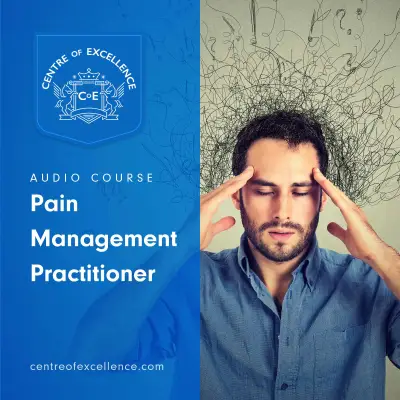Alcohol dependence afflicts a staggering number of lives in the UK, with government figures estimating over 342,795 alcohol-only-related hospitalisations from 2021 to 2022. While many support methods are available for those suffering from alcohol abuse, we are still only beginning to tap into the potential of alternative techniques like hypnotherapy for facilitating lasting recovery.
Jump to:

Understanding Alcohol Addiction
Unfortunately, there is often significant stigma and judgement surrounding those who suffer from alcohol addiction, despite research showing that there are many complex causes (including genetics, brain chemistry, environmental factors, and trauma). Genetics account for about half the risk, with some people having a predisposition towards alcoholism. The function and levels of certain neurotransmitters - like gamma-aminobutyric acid (GABA) and dopamine - also play a role in the development of alcohol dependence.
Over time, the brain's reward pathways can become dependent on alcohol, while a tolerance develops that requires more and more alcohol to produce the same effects. This leads to cravings and withdrawal symptoms when stopping. Alcohol addiction also takes a major toll on physical health. Heart disease, high blood pressure, cancer, liver disease and even depression, anxiety and insomnia are just a few of the many health issues that can stem from drinking too much alcohol.
Overcoming addiction is extremely challenging, but is possible through treatment (like hypnotherapy), medication, support groups, lifestyle changes, and addressing underlying causes. With help, many are able to regain their health, relationships and lives.
Recommended for you!
Best SellersThe Role of Hypnotherapy in Treating Alcohol Addiction
Hypnotherapy has actually been used for treating many types of addictions since the 19th century. Early clinicians noted its effectiveness for alcoholism. However, it went out of favour in mainstream medicine for decades, before research and clinical observations revalidated it as a complementary therapy. Controlled studies have now clearly demonstrated hypnotherapy as an empirically-supported intervention.
Hypnotherapy aims to help retrain the subconscious mind and conditioning that’s linked to addictive impulses. Techniques include:
- Visualisation for the avoidance of triggers.
- Ego strengthening.
- Replacement of negative cognitions with positive self-talk.
- Relaxation methods for managing cravings and anxiety.
- Motivation enhancement.
- Installing long-term plans for maintaining sobriety.
Hypnosis impacts activity in areas of the prefrontal cortex. This is involved in decision-making, impulsivity and habitual behaviours. It strengthens areas of cognitive control and reduces recruitment of the reward areas which drive addictive responses. While further research is still warranted, hypnotherapy is now considered to be an effective intervention, either by itself or in conjunction with counselling, cognitive behavioural therapy, 12-step programs and medication.
Benefits of Hypnotherapy for Alcohol Addiction
By accessing the subconscious mind, hypnotherapy helps to reframe thought patterns on a deeper level. This equips individuals with essential skills for managing recovery in their daily lives. Here are the three major benefits of hypnotherapy for alcohol addiction:
- Reduces cravings
Visualisation, distraction, and relaxation have been shown to effectively reduce the intensity and frequency of alcohol cravings. By accessing the subconscious mind, hypnotherapy targets the underlying causes behind urges to drink. It helps individuals to develop healthier ways to cope with and manage these cravings.
- Increased motivation
Additionally, hypnotherapy can renew motivation to stay sober. Through guided visualisation and positive reinforcement during sessions, people often experience a shift in mindset. They become determined to embrace a future that’s free from alcohol dependence and its effects.
- Reduces stress
It also serves as a powerful stress reduction tool by teaching relaxation techniques. It helps the dependent to learn to confront stressors and diffuse difficult emotions that may otherwise trigger drinking (e.g. negative emotions, anxiety, depression and sleep issues). Hypnotherapy also strengthens self-efficacy, as individuals are provided with lasting coping strategies to handle life’s challenges without turning to alcohol.
While hypnotherapy can be an invaluable component of treatment programs, there are some important limitations and risks to consider. It is critical to understand that hypnotherapy shouldn’t be used as a standalone therapy, but rather integrated with either counselling and lifestyle changes (and other interventions) as needed.
Additionally, people respond differently to hypnosis based on factors like suggestibility, openness to the process, and the specific addictive behaviours that are involved. A professionally trained hypnotherapist will conduct a full assessment to determine if hypnotherapy is appropriate and will tailor techniques to suit the client’s needs and response. They can also ensure hypnotherapy does not aggravate certain mental health conditions.

How Sessions are Conducted
For those new to the practice, there are often misconceptions about hypnotherapy methods. However, clinical hypnotherapy involves well-researched therapeutic techniques that can be invaluable in the treatment of alcohol addiction under the guidance of a qualified professional. Typically, the structure of sessions follows this same general format:
- The first hypnotherapy session starts with an in-depth assessment of the client’s drinking history, previous quit attempts, triggers and attitudes towards alcohol. This allows the therapist to develop a customised treatment plan targeting the specific addiction mechanisms for that individual. Certain conditions like schizophrenia may require alternate techniques or integration with psychological care.
- The therapist will then guide the client into a relaxed, focused hypnotic state using a progressive relaxation script. This may involve imagining a peaceful scene, focusing on breathing, or visualising descending steps. Other induction techniques might include eye fixation and gentle countdowns. This hypnosis induction allows the client to bypass their conscious thoughts and access their subconscious.
- Once in a receptive state, the hypnotherapist provides positive suggestions that are tailored to the client’s therapeutic goals. A few examples might be reducing cravings, avoiding risky situational triggers, replacing negative self-talk, or visualising themselves as being healthy, sober and in control. These suggestions are repeated, continually reinforcing the client’s motivation.
Combining Hypnotherapy With Other Treatments
As mentioned before, hypnotherapy shouldn’t solely be relied on as a form of treatment, which is why it is normally used with other treatments. For example, it’s most commonly integrated with cognitive behavioural therapy (CBT), motivational enhancement therapy (MET) and addiction counselling. This allows the individual to have more comprehensive treatment, addressing conscious thought patterns, underlying belief systems and external triggers. Counselling also gives continuity for enforcing the new mindfulness and coping skills instilled through hypnotherapy. Having a trusted therapist overseeing the process can really deepen the impact.
Some medications can also be prescribed alongside hypnotherapy treatment to ease withdrawal symptoms and chemically support abstinence during recovery. An evaluating doctor will determine suitable pharmaceutical treatments that are tailored to the individual. For those with co-occurring mood disorders or mental health issues, additional psychiatric medications may be helpful, as well as close medical supervision.
Each treatment type tackles different aspects of influencing drinking habits, whether that’s behavioural routines, thought patterns or subconscious urges. Using multiple methods allows for more personalised care that’s customised to what works best for each individual’s needs. The goal is to set the client up with a comprehensive support plan so they can build skills and strengths on multiple recovery fronts.
Hypnotherapy holds a lot of promise for supporting those on the road to recovery from alcohol addiction. If you’re interested in incorporating hypnotherapy methods into professional practice, we provide an accessible entry point with our accredited Hypnotherapy Diploma course for only £29 (save £98)! Aimed at both beginners and those with prior training who wish to expand their skill set, this course offers a comprehensive look into the critical foundations of ethical, effective hypnotherapy. Combining multimedia lessons, assessments, and a certification exam, the course equips aspiring therapists with the necessary core competencies to immediately implement solutions-focused hypnotherapy that’s tailored to issues like addiction.
If you want to read more about how hypnotherapy works - including the science behind it and considerations around effectiveness - be sure to explore our blog “Is Hypnosis real? Exploring the truth and effectiveness of Hypnotherapy”, which features an extensive FAQ section along with information on central concepts like the neuroscience of hypnosis and trance states.












